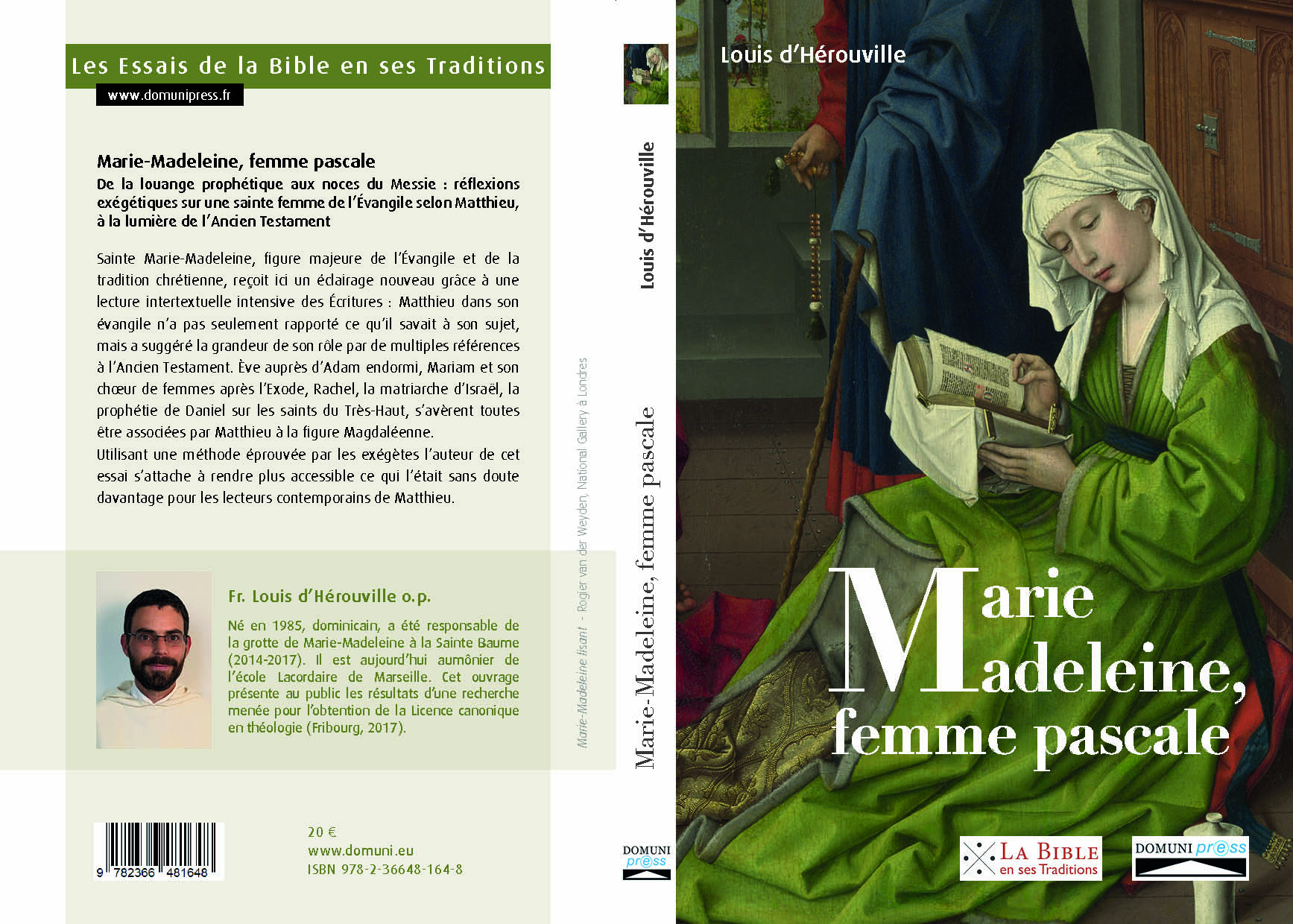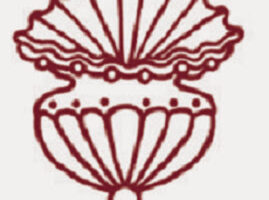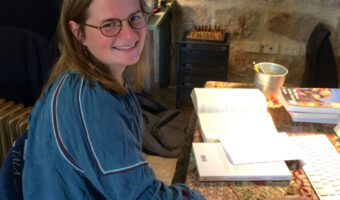« Bible in its Traditions 4 » : The Passion according to Saint Matthew
We will come back to it at greater length in a future newsletter: Passion selon saint Matthieu, more than a thousand pages in two volumes in our main collection published by Peeters, will be presented at the Congress of the Society of Biblical Literature in 2 weeks.
Here’s the back cover:
” The Passion according to St. Matthew “: under this title, which is that of several masterpieces of Western art, here are the last three chapters of the first canonical gospel, on which the pilot team of The Bible in its Traditions has worked for more than ten years. This book deals not only with the passion itself (Mt 26-27), but also with the compilation of testimonies of encounters with the Risen One that flank it (Mt 28).
Entirely re-translated, the text is commented on, as in the Glosis, in the form of analytical notes around the verses, or brief summaries listed in the second volume. The annotation describes the richness of the text, from its variants to its enunciative and narrative structures, including its lexicon and grammar. It also explores the context, in order to refine the historical approach, in particular thanks to information coming from the scholarly reappropriation of the Gospels as part of the Jewish literature of the so-called “Second Temple” period. Finally, it outlines the reception of the Gospels across disciplines and ages.
Experimental
By choosing a text with an immense posterity, multiform and full of artistic treasures, the team wished to experiment with the hermeneutic model of The Bible in its Traditions in all directions, including the most unexpected, such as dance. The rich investigation reported here shows that the history of the reception of the Gospel determines its meaning at least as much as the historical questions it raises. The inventory of interpretations is not a “decorative” discipline of lesser importance than its philological or historical study, nor of lesser seriousness than its properly religious use. Indeed, the very constitution of the Gospel text was already an act of reception, and its scientific study, however objective it may be, is also indebted to numerous preconceptions, of which openness to other disciplines, including the arts, makes it possible to become aware.
Not everything is printed: many extracts from ancient and modern authors, and many of the works of art examined in the course of this research, are not included in the present book. To discover them in the digital version of our research, readers should visit scroll.bibletraditions.org. Numerous multimedia notes present visual and musical works of art to contemplate, as opportunities to continue rediscovering this founding text, from unnoticed textual details to its most unexpected theological meanings.
These two volumes open up like a rich quarry of cut and arranged stones… ready for new elaborations.
Contributors
Maria Cristina Álvares — Louis-Marie Ariño-Durand — Geoffroy Aujay de La Dure — Carolina Aznar Sánchez — Méir Bar Asher — Gilles Banderier — Anne-Catherine Baudoin — Mathieu Beaud — Marie-Ève Benoteau-Alexandre — Anne Bertin-Hugault — Christophe Bourgeois — Agnès (Nathalie) Bruyère — Régis Burnet — Paul-Marie Fidèle Chango — José Costa — Andrei Costea — Jean Cronier — Maxime Decout — Blandine Delanoy — Pauline Duclos-Grenet — Emmanuel Durand — Benoît Ente — Jacques Évin — France Ferran — François Friche — David Galand — Jean-François Galinier-Pallerola — Tomasz Gałuszka — Pierre Gardeil — Sybille Gérain — Anthony Giambrone — Marie Gil — Hervé Giraud — Monique Gosselin-Noat — Petra Heldt — Xavier Lafontaine — Marc Leroy — Anne-Claire Lozier — Bieke Mahieu — Marie-Ancilla — Étienne Méténier — Gonzague Mézin — Pauline Micos —Clément Millet — Isabelle Moulin — Sophie Mouquin —Esther Pinon — Łukasz Popko — Gaël Prigent — Christophe Rico — Ioan Rigot — Olivier Robert — Marjorie Rousseau-Minier — Marc Ruggeri — Serge Ruzer — Marie-Madeleine (Lucie) Saint-Aubin — Renaud Silly — Marie-Claire Taillandier — Augustin (Paul) Tavardon — Marjolein van Tooren — Jorge Vargas — Olivier-Thomas Venard — David Vincent —Avital Wohlman
« Bible in its traditions, test 2 »
In the school of the evangelist Matthew, scribe who became a disciple of the Kingdom (Mt 13:52), Fr. Louis d’Hérouville O.P. provides in La femme pascale – the fruit of research carried out under the direction of Fr. Philippe Lefebvre in Fribourg – an eloquent demonstration of the singular relationship to the Scriptures, still in full effervescence, in Jewish Palestine at the turn of our era, at the crossroads of the Greek-speaking Alexandrian diaspora and the Aramaic-speaking Babylonian gālût.
He patiently reconstructs the scriptural sounding board on which Matthew transmits the memory of one of the most important women in Jesus’ entourage, Mary Magdalene.
This second book in our series of monographs develops the first (Nathalie Bruyère, Miroir juif des évangiles, 2020) on a point of cultural history of Palestinian Judaism of the first century which is decisive for the renewal of New Testament exegesis today: that of the relationship to Scripture. Together with the Temple and the worldview it projected into the details of Jewish daily life through the system of purity, the Scriptures formed the basis of the Jewish identity,
The Scriptures were, in fact, one of the two pillars of the “common Judaism” of that time.
Biblindex books
Volume 3 (CBP 22), Le puits des eaux vives, has been published.
This volume, the third in the sub-series “Cahiers de BIBLINDEX”, is the result of the research seminar which meets every month at the Institut des Sources Chrétiennes (Lyon) and accompanies the development of the BIBLINDEX project, the objective of which is the constitution of an exhaustive index, on line, of biblical quotations and allusions present in the Christian texts, Western and Eastern, of late Antiquity and its medieval prolongations.
It includes investigations of particular biblical sites through a large patristic corpus: the twins of Genesis, the identity of the second disciple of Emmaus, and, in Armenian exegesis, the Christological readings of Jn 20:24-29. Some articles focus on an author or a group of authors, in whom recourse to specific biblical texts is considered: the gospel healing narratives in Irenaeus of Lyons, Jn 8:51 in Bardesan, the Song in the Donatist controversy. Others examine a patristic text in order to analyse its biblical uses: the funeral oration of Satyrus by Ambrose of Milan, the Letter127 to Principia by Jerome, the Alethia of Victorius. Others are mainly interested in the variants of the biblical text used by the Fathers, in this case Cyprian of Carthage and Theodoret of Cyr. All of these works thus reveal both the riches of patristic exegesis, drawing from the “well of living waters” (Cf. 4:15), and the diversity of the methods used to bring them to light.
Table of contents
In memoriam : Pierre Maraval
Foreword – AbbreviationsLes jumeaux de la Genèse et leur interprétation par les Pères par Sébastien Garde
L’identité du deuxième disciple d’Emmaüs dans la littérature chrétienne ancienne par Anne-Catherine Baudoin
La voix et la main : quelques actions de Jésus lues par Irénée de Lyon au livre V (12-17) de l’Adversus Haereses par Agnès Bastit
La mort du corps et la résurrection de l’âme selon Bardesane : lecture théologique de Jn 8, 51 par Izabela Jurasz
Des citations bibliques négligées ? Révisions et interpolations dans les œuvres de Cyprien de Carthage par Laetitia Ciccolini
Les citations bibliques dans la première oraison funèbre d’Ambroise de Milan sur la mort de son frère par Aline Canellis
Les références scripturaires dans la Lettre 127 de Jérôme : de l’éloge de Marcella à l’apologie du christianisme par Aline Canellis
Le Cantique des cantiques dans la controverse donatiste par Nicolas Potteau
Les sources bibliques de l’Alethia de Claudius Marius Victorius, entre héritage patristique et judaïsme par Esther Falcon
La Septante et les autres traductions de la Bible hébraïque dans les commentaires de Théodoret de Cyr par Jean-Noël Guinot
La péricope de Jean 20, 24-29, argument christologique dans l’Église arménienne> par Maxime Yévadian
Biblical Rumours: a publication from Angers
Our friends from the team La Bible & ses lectures (UCO – UMR 8167 Orient & Méditerranée, Antiquité classique et tardive) and about fifteen invited researchers have recently published :
Rumours and renown in the Bible and its readings. A journey from the biblical origins to the modern era
Under the direction of Josselin Roux. “Bibliothèque des religions du monde 8”, Paris: Honoré Champion, 584 p.
In the societies of Antiquity, rumours and reputations held a capital importance. At a time when writing was all but unknown, “word of mouth” was the major source of information available. An in-depth exploration of these issues in the Bible, in our own era of Fake News this resonates with our relationship with information, authority, and truth.



